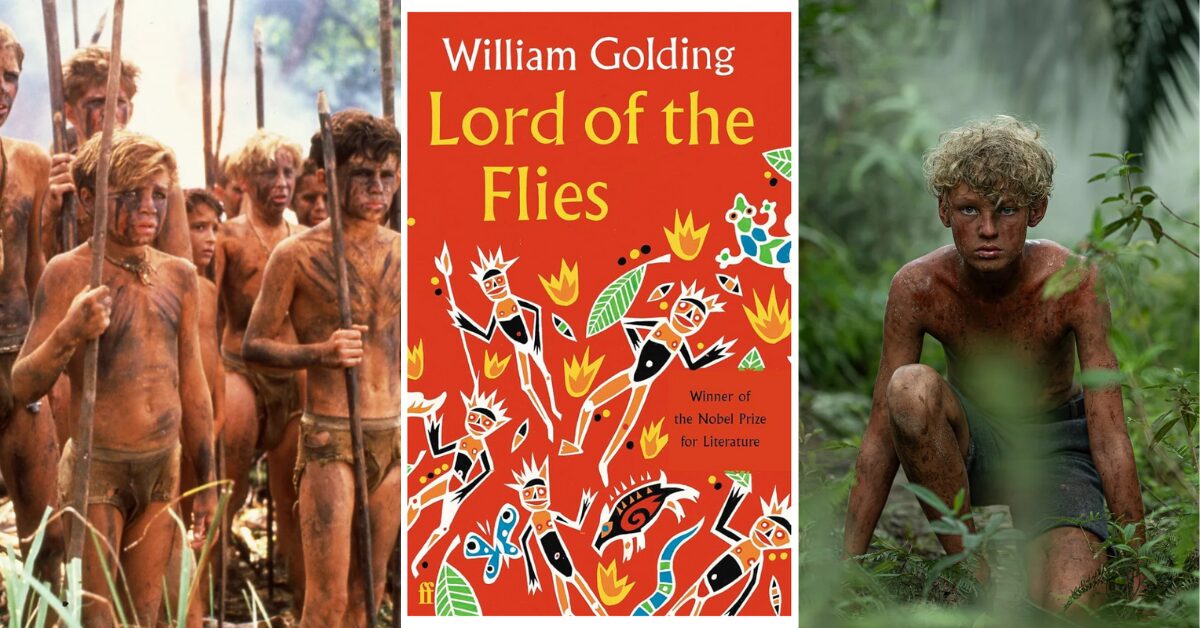From the epic quests in “Lord of the Rings” to the existential angst of “Catcher in the Rye,” the greatest authors have transcended time and culture with works that continue to resonate deeply with readers. Their stories, characters, and insights are woven into the fabric of society, becoming benchmarks of literary excellence and human exploration. Their words have influenced generations, leaving a lasting imprint on how we think, feel, and understand the world around us.
The Pillars of Literary History
The foundations of literature are built upon the works of iconic figures who have shaped the English language and influenced generations.
William Shakespeare – The Bard’s Enduring Influence
William Shakespeare, the preeminent English playwright, is widely regarded as the greatest writer in the history of the English language. His innovative narrative techniques and complex themes have firmly established him in the pantheon of literary giants. His plays, encompassing the breadth of human emotion and social commentary, continue to inspire and challenge audiences worldwide.
Charles Dickens – Chronicles of Victorian Society
Charles Dickens, an English writer and social critic, vividly captured the spirit of the Victorian era through his rich storytelling and unforgettable characters. His novels, which highlighted the social and economic struggles of his time, remain powerful commentaries on justice, inequality, and the human condition.
Jane Austen – Pioneer of the Realist Novel
Jane Austen, an English novelist, is celebrated for her wit, irony, and astute observations of early 19th-century English society. Her tales of love, marriage, and morality set the standard for the realist novel and continue to charm readers with their timeless relevance and keen social insights.
Leo Tolstoy – Master of Psychological Depth
Leo Tolstoy, one of the greatest novelists, left an indelible mark on literature and society. His masterpiece, “Anna Karenina,” is a tour de force of emotional depth and psychological insight, dissecting the complexities of life in Russia with a sharp, compassionate gaze.
Fyodor Dostoevsky – Exploring the Human Soul
Fyodor Dostoevsky, a Russian novelist and short-story writer, delved deep into the psyche of his characters to explore the moral and spiritual crises of 19th-century Russia. His profound narratives have earned him a reputation as one of literature’s most insightful explorers of the human soul.
Forging New Paths in Literature
These English writers transformed the literature landscape with their innovative styles and unique perspectives.
Virginia Woolf – Innovator of the Stream of Consciousness
Virginia Woolf, with her lyrical prose and experimental narrative structure, pioneered the stream-of-consciousness technique, offering readers a new window into the minds of her characters. Her literary contributions have cemented her status as one of the most influential writers of the 20th century.
James Joyce – Pushing the Boundaries of Narrative
James Joyce, a key figure in modernist literature, pushed the boundaries of narrative with his intricate plots and complex fictional characters. His works, like those of Henry James, have profoundly influenced the literary world, and his impact is still felt in the bustling streets of New York City and beyond.
Marcel Proust – Crafting a Life in Remembrance
Marcel Proust, a French novelist, is often lauded as one of the greatest literary figures for his monumental work “In Search of Lost Time.” His profound exploration of memory and desire has shaped how we understand the narrative’s relationship with time and experience.
Franz Kafka – The Absurdity and Alienation
Franz Kafka, a German-speaking Bohemian writer, masterfully crafted stories that capture alienation’s surreal and existential themes. His unique vision has deeply influenced the modern understanding of the individual’s struggle within an incomprehensible world.
Gabriel García Márquez – Magic Realism’s Foremost Voice
Gabriel García Márquez, a Colombian novelist and short-story writer, was awarded the Nobel Prize in Literature in 1982. As one of the most significant authors of the 20th century, his enchanting use of magical realism has transported readers to worlds where the extraordinary is commonplace.
Visionaries of Dystopian and Speculative Fiction
These authors have envisioned futures that reflect our deepest fears and highest hopes, challenging our understanding of society and humanity.
George Orwell – The Dystopian Mirror to Society
George Orwell, born Eric Arthur Blair, explored themes of authoritarianism and democratic socialism in his works. His dystopian narratives provide a cautionary reflection of society, examining the consequences of totalitarianism and the erosion of individual freedoms.
Aldous Huxley – Prophetic Insights into Future Dilemmas
Aldous Huxley, an English writer, delved deep into the complexities of human nature and societal change. His seminal work, “Brave New World,” stands as a profound prophecy, exploring the consequences of unchecked technological and scientific advancements on society.
J R R Tolkien – Architect of Epic Fantasy Worlds
J R R Tolkien, another English writer, transformed the landscape of fantasy literature by creating Middle-earth. His iconic works, including “The Lord of the Rings” and “The Hobbit,” are celebrated for their intricate world-building, rich languages, and timeless themes of good versus evil. Tolkien’s imaginative genius has inspired countless readers and writers, cementing his legacy as a towering figure in the realm of fantasy.
H G Wells – The Father of Science Fiction
H G Wells earned his title as the Father of Science Fiction through pioneering works that ventured into unexplored territories of imagination. Novels like “The War of the Worlds” and “The Time Machine” broke new ground, merging scientific curiosity with speculative storytelling. Wells’s narratives not only entertained but also provoked thought on the potential and peril of technological innovation.
The American Literary Renaissance
The American Literary Renaissance was a vibrant period of literary creativity, producing works still cherished for their reflection of American society and values.
Mark Twain – The Quintessential American Humorist
Mark Twain, born Samuel Langhorne Clemens, captured the spirit of American life with unmatched wit and satire. His “Adventures of Tom Sawyer” and “Adventures of Huckleberry Finn” remain keystones of American literature, offering humor and poignant critiques of society through his memorable characters’ mischievous escapades and moral reckonings.
F Scott Fitzgerald – Chronicling the Jazz Age
F Scott Fitzgerald, one of the most widely regarded American writers of the 20th century, immortalized the exuberance and disillusionment of the Jazz Age. His most famous novel, “The Great Gatsby,” is a piercing examination of the American Dream, opulence, and identity in the United States, capturing the essence of an era with lyrical precision and emotional depth.
William Faulkner – Innovator of the Southern Gothic
William Faulkner, both a writer and Nobel Prize laureate, revolutionized the Southern Gothic genre with his complex narratives and innovative use of stream of consciousness. His profound stories, set against the backdrop of the American South, particularly in his adopted home of Los Angeles, explore themes of sin, redemption, and the human condition.
John Steinbeck – Social Realism and the American Dream
John Steinbeck’s “Grapes of Wrath” remains an emblematic narrative of social realism, dissecting the American Dream through the tribulations of the Joad family. Steinbeck’s rich portrayal of migrant workers’ struggles during the Great Depression earned him both critical acclaim and a place as a conscience of American literature.
The Giants of Modern American Literature
The giants of modern American literature reshaped the literary world with their distinctive voices and enduring contributions to the canon of English writing.
Ernest Hemingway – Paring Language to Its Core
Ernest Hemingway, known for his economical use of language and understated style, made an indelible mark on literature. His works, such as “The Old Man and the Sea,” showcase a mastery of prose that conveys complex emotions and themes with stark clarity and powerful simplicity.
J D Salinger – Enigma of the Catcher in the Rye
J D Salinger’s “The Catcher in the Rye” is a defining work of 20th-century literature, capturing the angst and alienation of adolescence. The novel’s protagonist, Holden Caulfield, has become an enduring symbol of youthful rebellion and the search for identity.
Raymond Chandler – Defining the Hard-Boiled Detective Genre
Raymond Chandler elevated the hard-boiled detective genre with his creation of Philip Marlowe, a private eye navigating the corrupt streets of Los Angeles. Chandler’s sharp dialogue and moody descriptions in novels like “The Big Sleep” have influenced countless mystery writers and filmmakers.
Poets Who Transformed the Verse
These poets reshaped the landscape of poetry, each bringing a unique vision and voice that has had a lasting impact on the art form.
T S Eliot – Modernist Poet of the Wasteland
T S Eliot, an English novelist and poet, profoundly influenced modernist literature with works like “The Waste Land.” Using the pen name of George Eliot, Mary Ann Evans provided psychological insight into her characters, with her magnum opus “Middlemarch” being hailed for its depth and realism.
Robert Frost – America’s Poet of Rural Life
Robert Frost’s poetry captures the essence of rural American life, painting landscapes and exploring themes that resonate with the universal human experience. His accessible style and profound simplicity have made him one of America’s most beloved poets.
Emily Dickinson – Recluse with a Prolific Pen
Emily Dickinson, a poet who rarely left her home, crafted a vast array of poetry that continues to enchant readers with its depth and subtlety. Her reclusive nature did not hinder her creative output; rather, it seemed to fuel her introspective and innovative work, which often explored themes of death and immortality. With over 1,800 poems to her name, Dickinson’s legacy is a testament to the power of words, penned in the quiet solitude of her Massachusetts abode.
Walt Whitman – Bard of Democracy and Individualism
Walt Whitman is a towering figure in American literature, renowned for his seminal work “Leaves of Grass.” His poetry celebrated democracy, nature, love, and the individual, all while breaking free from traditional verse structures. Whitman’s candid exploration of the human spirit and his embrace of all aspects of life resonated with the ethos of a young, vibrant nation, earning him the title of America’s poet of democracy and individualism.
Storytellers Who Shaped Our Childhood
The tales that filled our childhoods, spun by imaginative authors, enchanted us and imparted valuable lessons. These storytellers crafted narratives that, while whimsical and fantastical, often reflected deeper truths about life and human nature, leaving indelible marks on our formative years.
Lewis Carroll – The Wonderland Creator
Lewis Carroll, the English writer, transported readers to the fantastical realm of Wonderland, where the impossible seemed plausible. His renowned character, Alice, encounters a world of wonder and absurdity that has captivated children and adults alike. Carroll’s ingenious use of wordplay, logic, and fantasy in “Alice’s Adventures in Wonderland” and its sequel inspires the imagination and continues influencing literature and popular culture.
C S Lewis – Chronicles of Faith and Fantasy
C S Lewis, acclaimed for “The Chronicles of Narnia,” wove together tales of faith, morality, and fantasy. His allegorical series offered adventures in an enchanting land and subtly explored deeper philosophical and theological questions. The enduring popularity of Narnia demonstrates Lewis’s skill in making complex ideas accessible and engaging to readers of all ages.
Dr. Seuss – Theodor Seuss Geisel’s Whimsical Rhymes
The whimsical rhymes and imaginative characters created by Dr. Seuss, born Theodor Seuss Geisel, have delighted children for generations. His unique style, combining playful wordplay with vibrant illustrations, conveys simple yet profound messages that resonate with readers. Dr. Seuss’s stories often encourage children to dream big, think critically, and embrace the joy of learning.
Roald Dahl – Tales of the Unexpected for Children
Roald Dahl’s storytelling prowess brought to life a world where macabre and humor coexist, captivating young readers with tales that twist and turn in the most unexpected ways. His characters, often children themselves, face off against daunting adversaries, revealing the complexities of human nature in their triumphs and travails. Dahl’s work remains a staple, infusing wonder and a touch of darkness into children’s literature.
The International Literary Scene
The tapestry of world literature is rich and varied, with international voices bringing unique perspectives, experiences, and storytelling traditions to the fore. This global narrative mosaic allows readers to traverse cultures, histories, and philosophies, broadening their literary horizons and fostering a deeper understanding of our shared human experience.
Jorge Luis Borges – The Labyrinths of the Mind
Argentine writer Jorge Luis Borges crafted intricate tales of labyrinths, mirrors, and infinite libraries that challenge the very notion of reality. His cerebral and philosophical stories explore complex themes and pose existential questions, making Borges a master of blending fiction with metaphysical inquiries. His influence on the genre of magical realism and postmodern literature is both profound and enduring.
Hermann Hesse – Journeys of Spiritual Discovery
Nobel Prize in Literature laureate Hermann Hesse penned novels that delve into his protagonists’ inner lives and spiritual journeys. Works such as “Siddhartha” and “Steppenwolf” offer a contemplative look at the human quest for self-understanding and enlightenment. Hesse’s insightful character studies and rich narratives resonate with those on their paths of personal discovery.
Murasaki Shikibu – The Tale of Genji and Courtly Romance
Murasaki Shikibu, a noblewoman of the Heian period, is best known for “The Tale of Genji,” often considered the world’s first novel. This courtly romance epic depicts aristocratic life in ancient Japan, exploring themes of love, status, and the fleeting nature of beauty. Her literary contribution is a cornerstone of Japanese culture and continues to influence writers across the globe.
Crime and Mystery Maestros
The crime and mystery genre is a realm where intrigue, suspense, and the thrill of the chase captivate readers. These authors have crafted some of the most compelling whodunits, psychological thrillers, and detective tales, leaving legacies that have defined and redefined the boundaries of the genre.
Agatha Christie – The Queen of Crime
Agatha Christie, the queen of crime, mastered the art of the detective novel, creating intricate puzzles that have baffled and entertained millions. Her iconic characters, Hercule Poirot and Miss Marple, have become synonymous with the genre. Christie’s ability to weave deception with meticulous plotting makes her works timeless as readers continue to revel in unraveling her mysteries.
Edgar Allan Poe – Inventor of the Detective Story
Edgar Allan Poe, widely regarded as the inventor of the detective story, laid the groundwork for American literature in the genre. As a literary critic and writer, he produced chilling tales of the macabre and introduced the world to the methodical sleuthing of C. Auguste Dupin. His influence persists, with the United States celebrating his profound impact on genres ranging from horror to mystery.
Sir Arthur Conan Doyle – The Adventures of Sherlock Holmes
Sir Arthur Conan Doyle brought the detective story to unparalleled heights with his creation of Sherlock Holmes. Holmes’s adventures, marked by astute observation and logical deduction, have become etched into the fabric of popular culture. Conan Doyle’s storytelling continues to captivate audiences, inspiring countless adaptations and reimaginations of the detective and his loyal companion, Dr. John Watson.
Conclusion: A Literary Journey Across Time and Space
This exploration of literary greats reveals a tapestry of voices that have shaped human thought and culture. Their legacies, captured in millions of copies worldwide, continue to resonate through adaptations in television series and films, ensuring their timeless tales remain part of our collective consciousness. If you’d like to continue exploring influential works from every era, you can browse a curated selection of essential classics.




